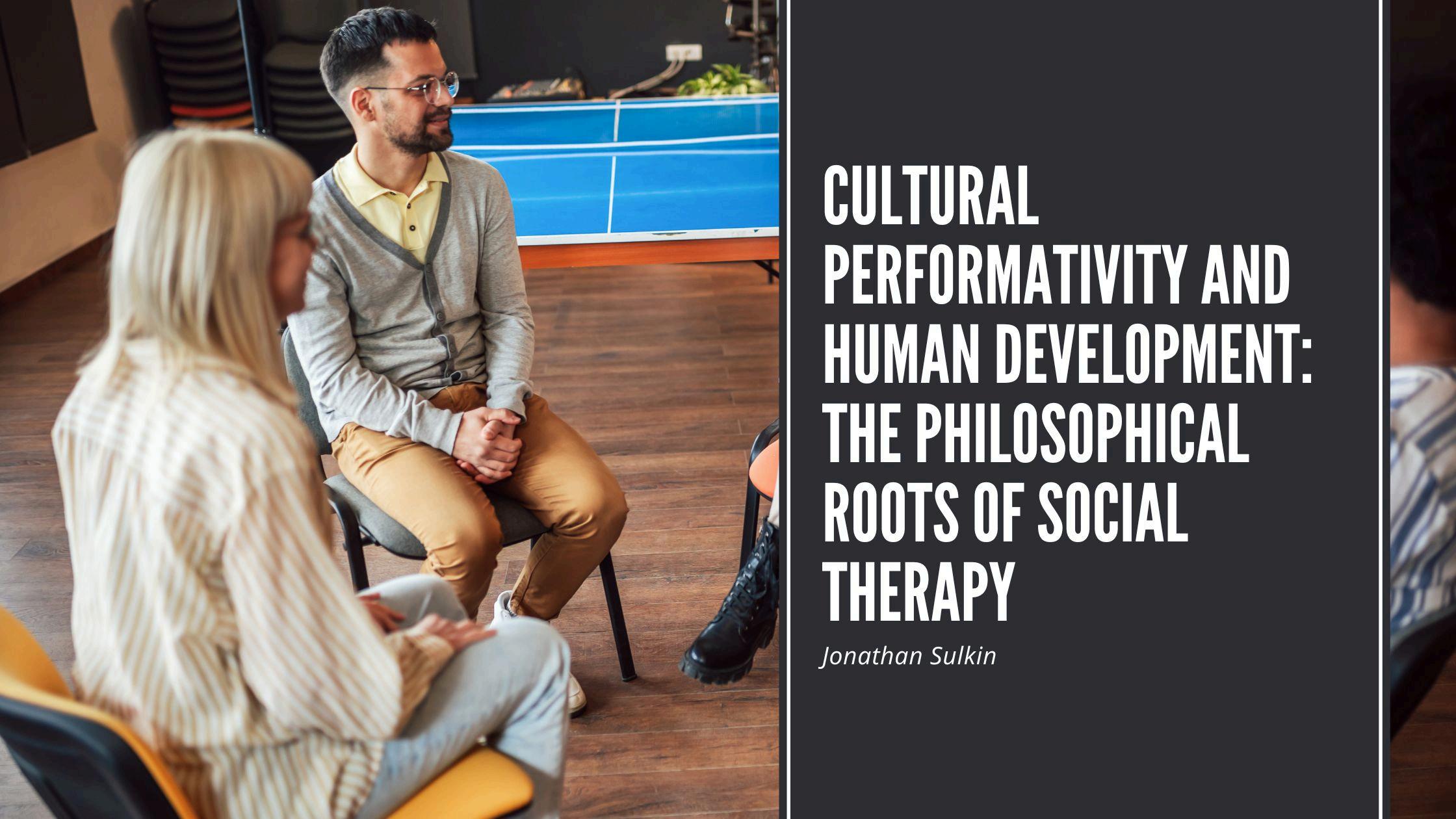

Cultural Performativity and Human Development: The Philosophical Roots of Social Therapy
by jonathansulkin | Nov 29, 2024 | Community, Jonathan Sulkin, Social Therapy

At the heart of social therapy lies a profound philosophical concept: cultural performativity. This idea, deeply rooted in the works of scholars like Lev Vygotsky and Ludwig Wittgenstein, forms the theoretical foundation of social therapy and shapes its approach to human development. Let’s delve into the philosophical roots of social treatment and explore how cultural performativity in�uences its practice
As elucidated by Vygotsky, cultural performativity emphasizes the role of culture and social interaction in shaping individual cognition and behavior According to Vygotsky, human development occurs within a socio-cultural context, where individuals engage in meaningful interactions with others to construct knowledge and meaning Through language, symbols, and shared practices, culture mediates our understanding of the world and shapes our identity and sense of self.
Wittgenstein further extends this idea by proposing that language and social practices are descriptive and performative. In other words, language and social interactions do not just re�ect reality; they actively create and shape it Through language games and social rituals, individuals negotiate meaning, establish norms, and construct social reality collaboratively.
Drawing on these philosophical insights, social therapy adopts a cultural-performative approach to human development In social therapy, the focus is not on diagnosing individual pathologies or uncovering hidden traumas but rather on creating new possibilities for growth and change through cultural and social practices. By engaging in collaborative activities, such as role-playing, storytelling, and group discussions, participants co-create meaning and transform their understanding of themselves and others In social therapy, the therapist serves not as an authority �gure or expert but as a facilitator of cultural and social processes The therapist creates a supportive and inclusive environment where individuals feel empowered to openly explore their emotions, thoughts, and experiences Through dialogue and shared exploration, participants gain insights into their thinking and behavior patterns and develop new ways of relating to themselves and others.
The philosophical roots of social therapy remind us that human development is a dynamic and relational process shaped by culture and social interaction By embracing cultural performativity, social therapy o�ers a holistic and empowering approach to personal growth and transformation, emphasizing the importance of community, connection, and collaboration in fostering human �ourishing
In essence, social therapy invites us to reimagine human development not as a solitary journey but as a collective endeavor grounded in shared meaning-making and cultural practices. By embracing the philosophical insights of Vygotsky and Wittgenstein, social therapy o�ers a profound and transformative vision of human potential and possibility
Cultural Performativity and Human Development: The Philosophical Roots of Social Therapy
Strengthening Communities: Mobilizing Resources for Sustainable Social Therapy Initiatives
Community-Led Healing: How Local Leaders Drive Change through Social Therapy Groups
Cultivating Connection: The Power of Peer Support in Community-Based Social Therapy Programs
Beyond the Clinic: Integrating Social Therapy into Community Centers and Organizations
Links
Jonathan Sulkin HubPages
Jonathan Sulkin Issuu
Jonathan Sulkin LiveJournal
Jonathan Sulkin Medium
Jonathan Sulkin Social Therapy
Jonathan Sulkin Tumblr
Jonathan Sulkin Vimeo
Jonathan Sulkin Vocal Media
© Jonathan Sulkin | Community 2024
